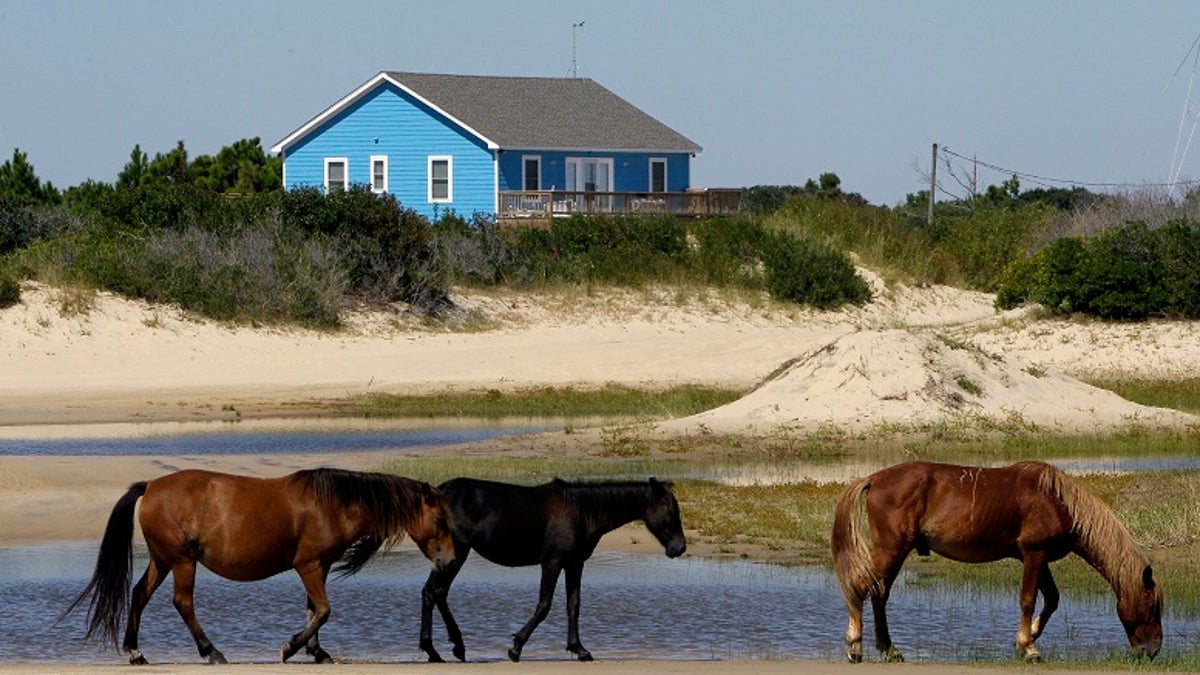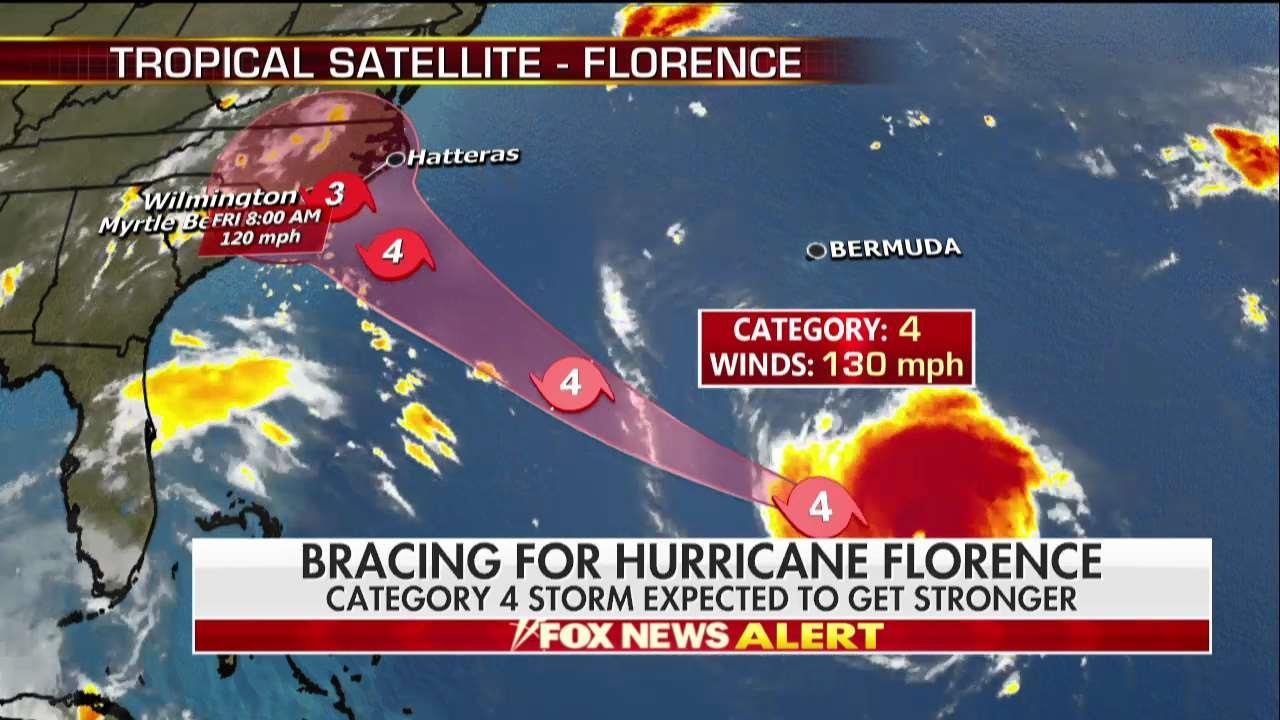
As North Carolina braces for Hurricane Florence, some tourists and residents are worried about the famous wild horses that roam the Outer Banks. But Sue Stuska, a wildlife biologist based at Cape Lookout National Seashore, said the horses instinctively know what to do in a storm (AP)
As Hurricane Florence looms toward the southeastern part of the U.S., roughly 1 million people have been forced to evacuate the coastal areas across North and South Carolina and Virginia to avoid the Category 4 storm that is expect to bring copious amounts of rainfall, flash flooding, intense winds and potential mudslides.
But as many of the region’s residents scramble to find shelter, where does that leave North Carolina’s wild horse population?
The horses, typically found along the state’s Outer Banks, which has been subject to a mandatory evacuation, have been in the area for hundreds of years — meaning this tropical storm isn’t their first.
HURRICANE FLORENCE: SAFETY TIPS FOR PETS
"Naturally, they are meant to be outside and they have high ground and they have thick places to hide," Sue Stuska, a wildlife biologist based at Cape Lookout National Seashore, told The Associated Press.
Horses are highly sensitive to changes in weather, knowing when to seek higher ground during a flood or search for shrub thickets to protect themselves from high winds.
While storm-related horse deaths are not unheard of — five wild horses drowned during Hurricane Isabel in 2003 — The Corolla Wild Horse Fund, a group devoted to protecting and managing a herd of wild Colonial Spanish Mustangs that roam the northernmost Currituck Outer Banks, attempted to assuage concerns in a Monday Facebook post.
HURRICANE FLORENCE'S PATH: TRACK THE STORM HERE
“The horses have lived on this barrier island for 500 years, and they are well equipped to deal with rough weather. They know where to go to stay high and dry and are probably in better shape right now than most of us humans who are scrambling with final preparations,” the group wrote. “They are much better off without any help from us; anything we might do in the hopes of "protecting" them would probably end up being more dangerous and stressful for them than the storm.”
Stuska echoed this sentiment: "Don't worry about them. They've survived for hundreds of years, and we expect that they'll be just fine."
The Associated Press contributed to this report.

